Burmese refugees flee oppression and violence for a life of hope in Sheffield
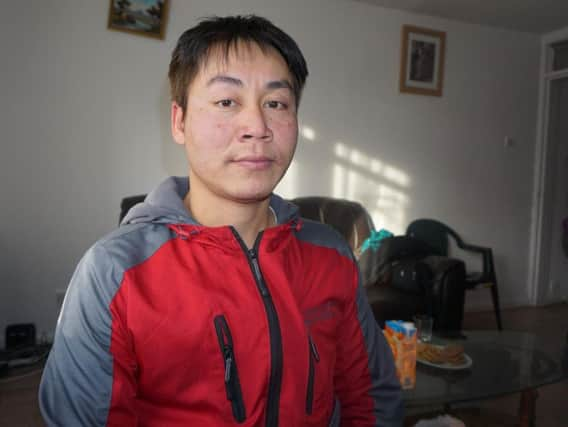

Seventy people fleeing the war-torn country have so far been given homes in the city under the Syrian Vulnerable Persons Resettlement Scheme.
With the global number of displaced people at its highest since the Second World War, they are unlikely to be the last refugees to settle in South Yorkshire. But nor are they the first.
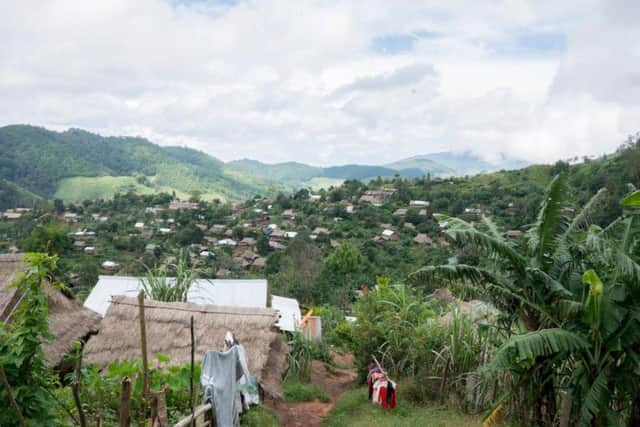

Advertisement
Hide AdAdvertisement
Hide AdAbout 10 years ago a small number of people originally from Burma - now known as Myanmar - were brought to England from refugee camps in Thailand under a joint programme run by the British government and the United Nations High Commissioner for Refugees, or UNHCR.
Between 2005 and 2008, 216 Burmese refugees were resettled in Sheffield.
Read more:
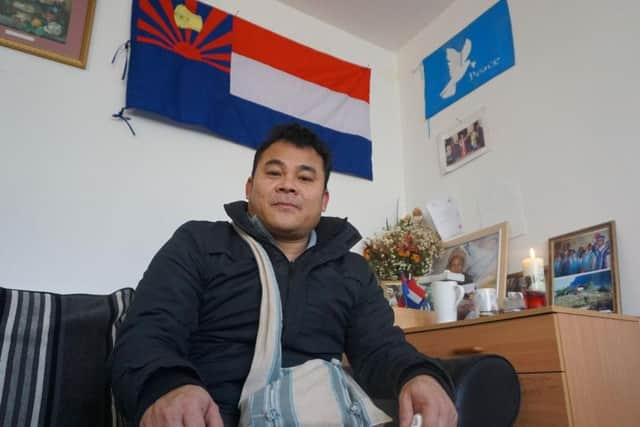

Advertisement
Hide AdAdvertisement
Hide AdBurma's history over the last 200 years is one of constant conflict, from British occupation to invasion by the Japanese during the Second World War, to the rule of a military government which lasted more than half a century.
Only recently has the military allowed a civilian government to take power, with Aung San Suu Kyi's National League for Democracy winning a landslide victory in 2015. The Nobel Peace Prize winner had already won a vote with a similar majority in 1990, but the military refused to hand over power and she was placed under house arrest, spending 15 of the 21 years from 1989 to 2010 in detention.
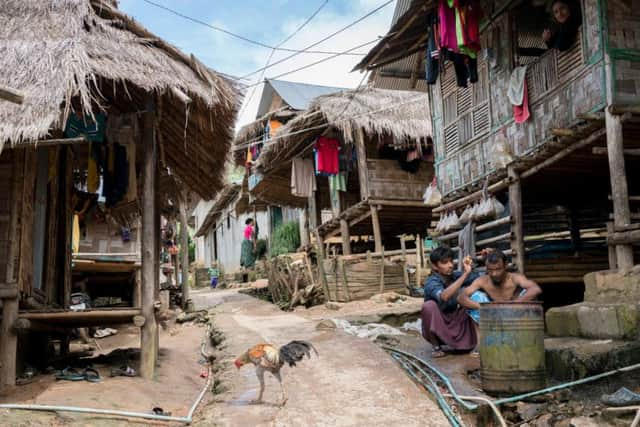

Some of those to suffer the most under military rule were - and in some cases still are - an ethnic group called the Karen. The mostly Christian people live in south and south-east Burma, making up about seven per cent of the country's population. The persecution they faced during the 20th century forced tens of thousands to flee over the border to Thailand.
A small number of those who escaped the terror of their former lives are now trying to rebuild in Sheffield. But the memories of what happened many years ago are still vivid.
Advertisement
Hide AdAdvertisement
Hide AdDoh Ray Doh and Lah Kei Htoo did not know each other before they met in Sheffield. But the two men were among hundreds to flee Burma in the mid-1990s, scared out of their poor farming villages by the constant threat of the Burmese Army, who would force the men to act as porters and abuse the women and children.
"My father died while he was a porter," said Doh Ray Doh, 44, speaking from a small Middlewood terrace. "He had to carry heavy logs - more than he could carry, and they caused him a lot of injuries.
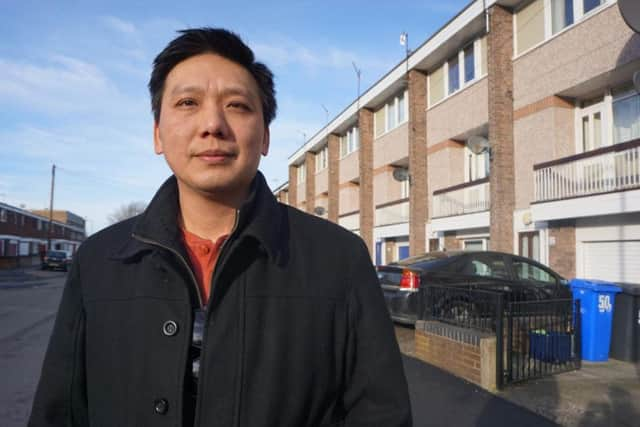

"When he became too ill, we couldn't afford any medication and he died.
"We could not go back to the village I was born in, as they burned it down and left it as ash."
Advertisement
Hide AdAdvertisement
Hide AdThe men and their families lived for a short time in a small camp by the Moei River that runs along the Thai-Burmese border. Burmese Army insurgencies forced them into nearby fields, but that didn't last long.
"The Thai people burned the fields because they didn't want the Karen people there," said Doh Ray Doh. "We ran around like chickens. We were terrified."
Lah Kei Htoo, 39, was also in those burning fields. He clearly recalls the fear that eventually caused him to flee his home.
"I can still remember when the army saw us hiding in the fields and pointed their guns at us," he said.
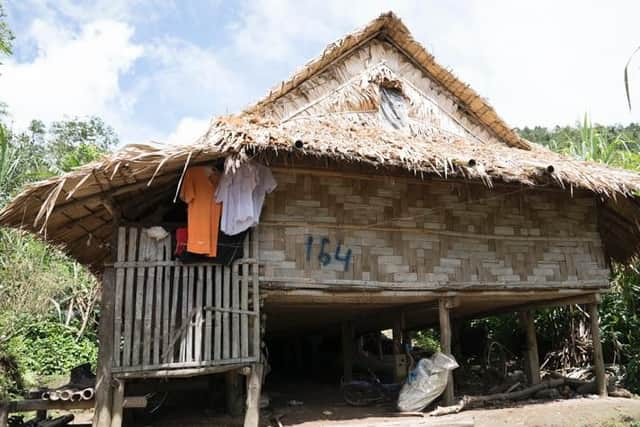

Advertisement
Hide AdAdvertisement
Hide Ad"They asked my mother where her husband was, and whether he was a soldier with the Karen National Union army. She said he was a farmer, but the soldier slapped her a few times.
"The army kept coming so we had to run away to the mountains."
As more and more Karen people fled Burma, nine refugee camps were set up in Thailand. The biggest, Mae La, has been there for more than 30 years and is home to about 40,000 refugees.
Charities such as Christian Aid and the US branch of the International Rescue Committee formed The Border Consortium, or TBC, to provide food, shelter and other forms of support to refugees in the Thai camps. Many have been resettled to Western countries, although a huge number still remain.
Advertisement
Hide AdAdvertisement
Hide AdBut persecution still exists, despite the watchful eyes of global organisations.
Rosaline Graham, 41, now lives in Sheffield after marrying an English man - her 'saviour' - who she met while volunteering for the UNHCR. Her life now is significantly better than it was in Thailand. But her anger towards the Thai security at the camps has not faded with time.
"If you were a woman, they saw something different," she said. "You could not go outside the camp.
"Sometimes a Thai farmer would ask you to work for them. In the morning the guards would let you out, but in the evening they would know you were coming back with money.
Advertisement
Hide AdAdvertisement
Hide Ad"They would grope us - sometimes they would do it to women older than 60.
"They would make you squat with your hands above your head for hours. They would kick you.
"I hated the Thai people so much. To me they were the same as the Burmese Army."
Rosaline said people were treated 'like animals', adding: "You had no right to do anything. You were stuck inside a fence."
Advertisement
Hide AdAdvertisement
Hide AdUnlike many Karen people, Rosaline was originally from Rangoon, the Burmese capital. She had a decent education, and her English skills mean she is now perfectly placed to help other Karen people like Doh Ray Doh and Lah Kei Htoo, who came from poor farming backgrounds and have struggled to learn the language since arriving in Sheffield.
Rosaline and Win Cho, who came to the UK as a student 12 years ago, are members of a tight-knit Karen group lucky enough to have the opportunity to start new lives in the city.
"The teenagers and children have no problems," said Win Cho, 42. "But for the older generation with no previous education, they struggle a lot. Some break down - but we help each other."
Sheffield's Karen people have set up their own church, and are part of the the UK Karen Community Association, which was founded in 2006 and also has branches in Bolton and Bury, and London.
Advertisement
Hide AdAdvertisement
Hide AdSheffield people have mostly given a warm welcome, according to Win Cho, with help coming in particular from the church community. The Karen are looking forward to welcoming new faces at their new year celebration at Forge Valley Community School on January 7.
And although many of older Karen refugees struggle to find work, they are happy their children now have hope for the future.
Lerbwe Wai, 65, became a refugee in 1984, and lived in Mae La, the biggest refugee camp, for 10 years. Her five children were born in the camp, and although there is a school at Mae La, she was terrified of what would happen to them.
All five are now going through school and planning their lives and families in Sheffield and further afield.
Advertisement
Hide AdAdvertisement
Hide Ad"I wanted to leave mostly for my children's future," she said. "There was no future in the camp.
"I am happy that they now have a future."
Christian Aid's Light The Way Christmas appeal will support some of the 65 million people fleeing from conflict and crises across the world, including those living in refugee camps in Thailand, including the Karen people. Visit www.christianaid.org.uk/christmas-appeal and tweet using the hashtag #Lighttheway.
Check back this week for parts two and three of our look at the lives of Burmese refugees.